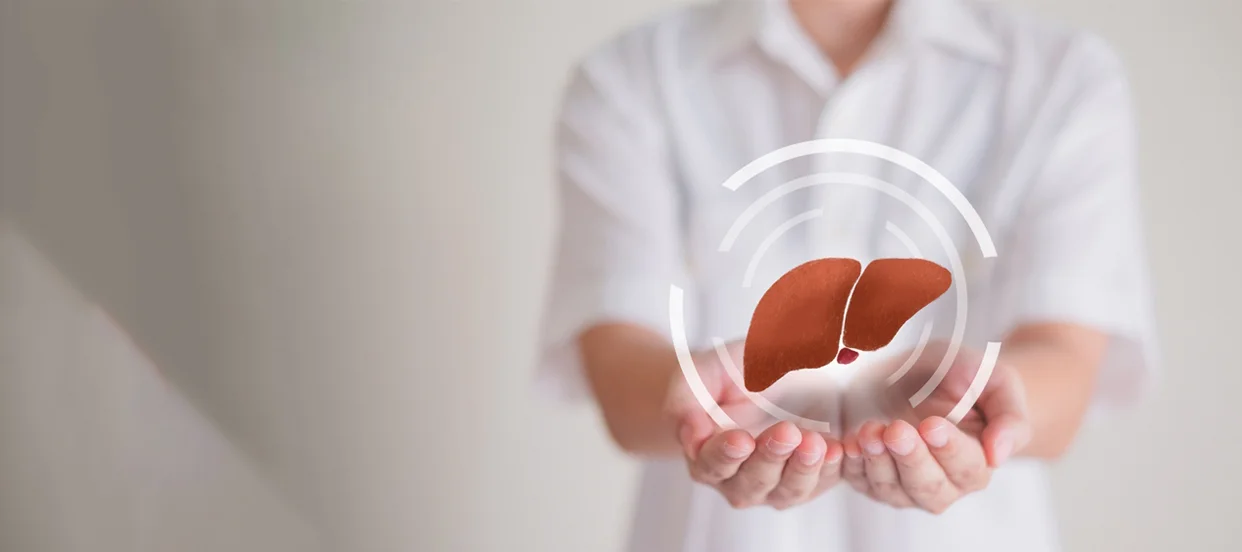
Your liver is one of the most vital organs in your body. It is involved in digestion, detoxification, energy production, and maintaining your body's health. However, most individuals don't care about their liver health until something goes wrong. In the modern age, liver disorders—particularly Non-Alcoholic Fatty Liver Disease (NAFLD) and Non-Alcoholic Steatohepatitis (NASH)—are gaining momentum as a result of improper dietary habits, physical inactivity, and lifestyle.
The liver is responsible for more than 500 functions. It metabolizes the food you consume, digests fats, makes bile, and removes toxins from your blood. It also stores energy and controls hormones.
If the liver gets damaged or overloaded, these functions begin to fail. A healthy liver operates in the background, but when diseased, it silently worsens without symptoms until the damage is advanced. That's why it's so important to take preventive measures and ensure healthy liver function throughout your lifetime.
NAFLD (Non-Alcoholic Fatty Liver Disease) is a condition in which fat accumulates in the liver, even if you consume little or no alcohol. It's one of the most prevalent liver ailments these days and occurs in people of all ages, including children.
NAFLD typically begins without symptoms. Most people are unaware they have it. But if NAFLD is not treated, NAFLD can advance to a more severe condition, known as NASH (Non-Alcoholic Steatohepatitis), in which the liver is inflamed and damaged. Over time, this can eventually result in fibrosis (scarring), cirrhosis, liver failure, or even liver cancer.
While both NAFLD and NASH are characterized by fat accumulation in the liver, the distinguishing factor is inflammation.
NAFLD is the initial stage, where there's fat in the liver but minimal to no liver damage or inflammation.
NASH is more severe—it has inflammation, liver cell damage, and can result in scarring.
Not all individuals with NAFLD will get NASH, but the possibility rises with obesity, diabetes, elevated cholesterol, and lack of physical activity. That is why early prevention of NAFLD is the most effective approach to maintain long-term liver health.
Liver diseases tend to be silent initially. But as the disease progresses, symptoms can arise, including:
If you experience these liver disease signs, it is crucial to see a doctor. Early diagnosis may prevent irreparable harm.
Prevention of NAFLD is primarily through healthy life habits. Here's how you can lower your risk:
1. Have a Healthy Weight
Obesity is one of the biggest risk factors for fatty liver. If you’re overweight, losing just 5–10% of your body weight can significantly reduce liver fat and inflammation.
2. Eat a Balanced, Liver-Healthy Diet
A liver health diet focuses on whole, unprocessed foods:
Eat more fruits, vegetables, whole grains, legumes, and lean protein.
Avoid refined sugars, white bread, fried foods, and processed snacks.
Cut back on sugary drinks and alcohol.
Use healthy fats such as olive oil and nuts in small amounts.
Certain foods such as leafy vegetables, turmeric, garlic, and green tea are thought to enhance liver detoxification and function.
3. Be Physically Active
Regular exercise enhances insulin sensitivity and aids in burning fat from the liver. Exercise for at least 30 minutes of brisk walking, cycling, or swimming five times a week.
4. Regulate Blood Sugar and Cholesterol
Ailments such as type 2 diabetes and high cholesterol usually accompany liver problems. Monitor your blood sugar, blood pressure, and cholesterol levels by eating right, exercising, and if necessary, medication.
5. Don't Take Nonessential Medications or Supplements
Some medications, herbal supplements, or drugs can damage the liver. Always take prescribed amounts and check with your doctor before taking over-the-counter medications or detox products.
6. Drink Less Alcohol
Although NAFLD is not alcohol-induced, alcohol can make liver injury worse. If you have a liver problem, it's best to stay away from alcohol entirely.
Most individuals find NAFLD or NASH on regular blood work or imaging tests for another reason. These are some of the frequent ways to spot fatty liver:
Routine checkups with your doctor can detect fatty liver before it becomes a problem.
There is no drug approved for NASH treatment as of now, but the goal is to cease inflammation in the liver and avoid further damage.
Physicians usually suggest:
In more severe situations involving cirrhosis or liver failure, a transplant of the liver may be an option.
You don't require fancy detox teas or hardcore cleanses. The most effective way to enhance liver health is by caring for your body using natural, long-term practices:
Several products purport to "detox" the liver but the reality is your liver is already your body's natural detoxifying machine. Unless you have a diagnosed liver disorder, you don't need costly detox programs.
Granted, minimizing the exposure to toxins (such as alcohol, tobacco, and processed foods) and eating a clean, nutrient-dense diet will be beneficial to your liver. Supporting your liver equals to giving your liver less to filter—that's the true liver detox.
Ignoring signs of fatty liver or dismissing subtle elevations in liver enzymes can have dire consequences:
Your liver operates behind the scenes, day in and day out, removing toxins, controlling hormones, and maintaining your metabolism in check. Whether or not you're facing the onset of fatty liver disease, it's never too early to be liver-friendly.
By maintaining a liver health diet, exercising, not consuming harmful substances, and attending regular check-ups, NAFLD, NASH, and a host of other complications can be avoided.
If you're showing signs or require professional advice, visit Dr. Abhishek. Early treatment is essential to prevent complications.